|
The past several weeks have indubitably been a struggle of cultural adjustment and language acquisition, but more than anything they have been an internal debate of whether or not to start writing a study abroad blog.
I often have trouble writing about my personal experiences - talking about myself makes me uncomfortable. However, I’ve basically been on edge since the moment I stepped on French soil, so why not push it even more? Here’s the rundown: I got into France on January 3rd via a plane that arrived in Paris at 8:00 in the morning local time. A friend and I killed time during our ten hour layover by watching Netflix, sleeping, and staring blankly into the distance given that our bodies thought it was somewhere in the middle of the night in the US. I had my first conversation in French thanks to a burning need for caffeine, and even though I mispronounced the fake French name I gave to the barista (the first of many times since I’ve arrived), I managed to emerge unscathed. Jetlagged, sick, and petrified by the idea of having any kind of serious conversation in French, I made my way with my cohort of American students through the first week of orientation, sightseeing, and exploration of Montpellier. At the end of week 1, I moved in with my host family (who are incredibly nice people that I am thankful for on a daily basis) and started classes the week after. If I can be candid, it’s been a lot. This is mostly due to the fact that I feel so incredibly saturated with French words and grammar and idioms that sometimes I can’t conjure up any of the words that I need. There are good French days and bad French days – sometimes I feel as if the language has really “clicked” and I don’t have to consciously think about everything that I’m saying (this also often occurs after one or two glasses of wine). However, the bad days are unreasonably frustrating – I’ve long taken for granted the ability to express myself and communicate effectively in English, and trying to do so in French sometimes just isn’t going to happen. Not to narcissistically embed my own tweets (but absolutely to narcissistically embed my own tweets), but here are some of the funnier language faux-pas I’ve had thus far:
Despite my language-based frustrations, my overall experience in this first month has been great. Certainly not perfect, but definitely great. Basic interactions have become at least 50% less anxiety inducing, and I feel relatively comfortable getting around Montpellier using its colorful public transit system.
My classes are starting to become routine, although the vastly different (and by that I mean less intensive) homework load has been somewhat bizarre. Luckily though, I feel like I have a good support system here between friends, program staff, and my host family. Things have only been getting easier, especially after a couple solid stress cries early on in the month.
I’ll conclude with some of my favorite (and therefore ungodly overplayed) songs from the month. À la prochaine fois !
19 Comments
As a musician and a music lover, I love to share music with others. As a young person, I also have a highly inflated opinion of my relatively average music taste. However, when I found myself encountering difficulties in producing a piece of writing for this blog, it seemed natural to take a stab at something simpler.
So with that glowing introduction, I’d love to share with you some of my favorite songs that I listened to a ton while spending the summer in LA. And if you're a TL;DR type, I embedded the entire playlist at the bottom of this post. 1) “Cut To The Feeling” – Carly Rae Jepsen If you still harbor feelings of animosity for Carly Rae Jepsen in the wake of her 2011 single, “Call Me Maybe”, I have two things to say to you: “Call Me Maybe” is a bop, and Carly Rae Jepsen makes great music, shut up. “Cut To The Feeling” is upbeat, light, and honestly, maybe catchier than "Call Me Maybe". To me, its lyrics evoke the desire to drop everything to have fun with the people or person that you love. Overall, it’s an energetic, fun song that’ll probably make you want to dance, or if you don’t dance, at least walk really confidently on the street. 2) “As If It’s Your Last” – BLACKPINK I have to list this song near the top because I want people to listen to it so badly. If you listen to nothing else from this post, listen to "As If It's Your Last". BLACKPINK is a four member Korean girl group that debuted just about a year ago. “As If It’s Your Last” is their fifth single and was released in June. In contrast to BLACKPICK’s slightly edgier or darker previous singles, “As If It’s Your Last” is unabashedly bright, fun, and colorful. Its music video also broke several YouTube records, including most views on a K-pop video in 24 hours (taking the record from BTS’s “Not Today”). To be honest, probably about 100 of its now roughly 96,000,000 views are me. Overall, this is my completely uncontested song of the summer.
3) “Strangers” – Halsey feat. Lauren Jauregui “Strangers” had me hooked from the beginning with pulsating synth sounds and a driving beat. However, I was instantly invested in the song as soon as I heard Halsey sing, “She doesn’t kiss me on the mouth anymore," because if you know me you know that I'm a sucker for queer content. I knew before listening that both Halsey and Lauren Jauregui are out, bisexual women, but somehow I still didn’t expect a female pronoun to slip out of Halsey’s mouth. As I listened further, it became abundantly clear that “Strangers” was about a song about queer intimacy, love, and at times, distance. “Strangers” is the bisexual anthem of the summer, and I hope you love it as much as I do.
4) “Shangri-La” – VIXX VIXX is a six-member K-pop boy group that debuted in 2012. I remember learning about them sometime in 2015 from a friend who got into K-pop long before I did, but somehow I managed to sleep on them for a solid two years. My mistake. “Shangri-La” is a song that has been on basically every playlist I’ve made this summer because it is, for lack of a better word, intoxicating. Furthermore, the choreography is stunning (one word: fans) and the music video is gorgeous. Don’t make the same mistake I did two years ago – watch the music video here:
5) “6/10” – dodie “6/10” is soft and reserved, beginning with quiet piano chords threaded together by a light, repeated note. Soon after, the song introduces lush strings that complement dodie’s tender vocals. For me, the song evoked a very specific feeling of being at a party or other large social gathering and leaving alone despite your friend’s insistences that they’ll go or give you a ride home because you believe that even if they offer help, it’d be a chore for them to provide it. Listen to "6/10" here, and if you like it be sure to check out dodie's upcoming album You coming out on August 11th! 6) “Hobgoblin” - CLC “Hobgoblin” is, to be blunt, completely badass. Somehow, it became my go to commute song because it makes me feel in charge and powerful whether I’m walking to my metro stop, standing on the train, or sandwiched in between two other sleepy passengers on the bus at 8:30 in the morning. With a repetitive, driving chorus, fast paced raps, and smooth vocals, “Hobgoblin” is the total package. Check out the “Hobgoblin” music video below, and if you’re interested, CLC recently released a new MV with a completely different but just as well-executed vibe. 7) “Baepsae/Silver Spoon” – BTS I had to think long and hard about which BTS song to write about here because to be honest, I’m constantly in a state of rotating through their discography and have been since March, which was the month when I basically listened to exclusively BTS. I started listening to them in January on a friend's recommendation and gradually became more and more of a fan to the extent that my roommate and I drove to Chicago and back in a day to go see them perform on the US leg of their Wings tour (It's a great story, ask us about it). You might recognize BTS from winning the Billboard Music Award for Top Social Artist this past May. “Baepsae/Silver Spoon” is fan-favorite song that’s a commentary on older generations telling the younger generation that their difficulty to find success is due to a lack of effort and not other societal factors. It references things like “Passion Pay”, which is essentially employers justifying underpaying their part-time workers/interns by saying that they’re also paid in experience and getting to work in a field they’re passionate about. If you’re looking for some good translation notes about "Baepsae/Silver Spoon", check out this post. I chose to include this song because I feel like it really embodies what BTS is about: socially conscious music that young people all over the world can relate to and songs that are absolute bangers. Even if you’re not interested in lyrics, the song is great and the choreography is intense. Watch the dance practice video below (the song starts around 0:41): 8) “Hola Hola” – K.A.R.D I’m going to level with you – I didn’t think there was going to be so much K-pop on this playlist but it makes sense when you take into account the fact that 90% of the music I listened to this summer was, well... K-pop. Consider this though: K-pop is a genre that draws from a wide range of musical influences, and arguably there’s something in there for everyone. Also, I’m in too deep. That being said, “Hola Hola” was one of my favorite songs of the summer. It was the title single from K.A.R.D’s debut mini-album that was released this past July. With a strong beat, a great mix of vocals, and a catchy hook, “Hola Hola” quickly became one of my go-to feel good songs. Watch the MV for “Hola Hola” here, and if you like it enough, come to K.A.R.D's concert in Minneapolis with me this September!
Other Honorable Mentions I don’t have enough space to write about all of my favorite songs, and I’m sure by this point you don’t have the patience to read about them. Here’s an abbreviated list of the rest of this playlist: 9) “Ko Ko Bop” – EXO 10) “Nekketsu” – Nekfeu feat. Crystal Kay 11) “Worth It (Perfect)” – Superfruit 12) “DINOSAUR” – AKDONG MUSICIAN 13) “There For You” – Martin Garrix feat. Troye Sivan 14) “Versace On The Floor” – Bruno Mars 15) “Palette” – IU feat. G-DRAGON If you want to listen to the music in this post without having to navigate a bunch of YouTube links, check out the playlist on Spotify! 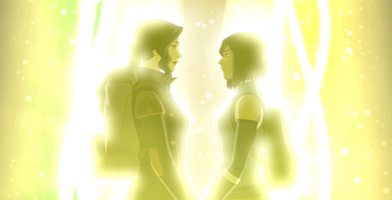 Asami (left) and Korra (right) set off into the sprit world in the finale of The Legend of Korra. Asami (left) and Korra (right) set off into the sprit world in the finale of The Legend of Korra. When I was twelve years old, I published my first fanfiction. It was 617 words long and about Fang, a character from Maximum Ride, getting his routine vaccinations. I vividly remember going through a serious, deliberative decision process of whether I should include the word “crap” in something that I published on the internet because I was a kid and didn't want college admissions officers five years into the future to look down on me. If you want to peek at my early masterpiece – here. After discovering fanfiction by accident while searching around the internet for information about a new Harvest Moon game, I was hooked on the genre. I would spend hours on my family computer creating document after document about characters from Maximum Ride, Artemis Fowl, Harry Potter, and so many other books and movies. Being able to work with other characters was a boon to my creative and allowed me to write freely without the pressure of creating original characters or settings. While fanfiction in and of itself indubitably benefits young, inexperienced writers, the community was in the end what kept me writing fanfiction. Most fanfiction websites allow users to like, favorite, or give kudos to a story or author as well as leave reviews and constructive criticism. Before I was introduced to social media sites like tumblr or twitter, I had no way to communicate with people in the same fandoms as me unless I knew them in real life. Despite the fact that every one of my interactions online was haunted by the memory of all of my elementary school teachers admonishing me to never talk to strangers on the internet, I made friends quickly by leaving reviews on each other’s stories and chatting over fanfiction.net’s private messaging service. We exchanged ideas for our respective stories, shared recommendations about stories we liked, and at one point I even met a friend I had made online at an anime convention. For then fourteen-year-old me, things didn’t get much better than that. Along with it’s creative benefits and ability to establish a (mostly) constructive community for young, nonprofessional writers, fanfiction in today’s political climate has also allowed authors to craft their own representation when they fail to see themselves represented in mainstream media. In particular, fanfiction presents a medium in which queer writers can write about queer characters, and in turn, for queer readers to read about queer characters. It’s difficult to find positive, queer representation in mainstream media, especially with tropes like “bury your gays” where show runners kill queer characters (particularly females) off. The impact of this can be incredible – I remember sitting on a plane with a friend as we flew to Florida. He was watching Carol, a 2015 film centered around two women develop an intimate relationship. At the conclusion of the film, he turned to me, highly emotional, and exclaimed, “No one died!” When the metric of positive queer representation is a lack of death of one of the primary characters, obviously something isn’t correct. This isn’t to say that queer representation isn’t making great strides from where its been. Shows such as The Legend of Korra, which concludes with two bisexual women of color setting off on what is probably the coolest date ever, provide positive, although not wholly explicit, queer representation. Other cartoons such as Steven Universe and Star vs. the Forces of Evil are taking steps to introduce queer characters or explore themes related to sexuality and gender identity. Furthermore, there has been a greater number of transgender characters present in television, with approximately 6% of regular and recurring LGBTQ characters on broadcast, cable, and streaming programs in this television season being trans (for a comprehensive report on LGBTQ representation in general this television season, check out GLAAD's "Where Are We on TV" 16-17 report). Still, current queer representation in modern media isn’t enough. However, fanfiction provides an outlet for in particular queer youth and young adults to write and craft positive queer representation in the form of some of their favorite characters. Fanfiction as a genre is famous for being, well… pretty gay, with its origins tracing all the way back to Kirk/Spock fanfiction written in the 1960s. Fanfiction serves as a kind of escapist literature for the queer community, allowing people to read or write about their favorite characters as queer and change the societal environment that their stories take place in, whether they want to write within a world where queer discrimination and transphobia don’t exist or whether they want to tackle these topics in a safe medium. When it comes down to it though, seeing representation even in simple, cliché settings like the infamous “coffee-shop AU” or experiencing a typical domestic morning is both crucial and validating. Telling these stories is more than a simple retelling and is essentially a reclamation of heterosexual-dominated narratives and validation that yes, queer characters and by extension queer people still experience the same, basic, trite love stories that heterosexual people do. Fanfiction is still nerdy as hell and I won’t deny that fact. Even though it’s a key facet of fandom culture (and my everyday life), it also serves the critical functions of providing a safe, encouraging space for young writers and allowing queer youth to craft their own positive representation when they fail to see it in mainstream media. Although my understanding of fanfiction has certainly shifted from a tool to build creative writing skills to a way to better understand queer identities, the fact remains that its still a crucial and immutable party of my life and the lives of many others as well. So if you ever need fic recs, hit me up. In a historic referendum that occurred on June 24th, 2016, 51.9% of UK voters cast their ballots in favor of rage quitting - sorry, exiting - the EU, fueled by concerns over fees that the UK pays to the EU, distaste of “excessive” EU regulations, a hatred of EU immigrants who reportedly take jobs from UK citizens, and fear of non-EU citizens from sneaking in to commit terror attacks.
If this kind of disgusting rhetoric concerning immigration doesn’t sound familiar, you either a. Intentionally avoid all media sources (which raises the question of why you’re reading this), or b. Have spent your entire life living in nature and trying to assimilate into a wolf pack. Political figures such as Boris Johnson, who John Oliver describes as a man having “both the look and economic insight as Bam Bam from the Flinstones”, and Nigel Farage, leader of the United Kingdom Independence Party (UKIP) whose facial expressions pretty much make you want to sock it to him, stood in staunch support of Brexit, backing their hate filled rhetoric with inaccurate facts and appeals to voters’ fear of immigrants and power structures that supersede their own influence. Already, the results of the referendum have already set in motion a chain of events that should make apparent why Brexit wasn't (and still isn’t) a good idea. On an economic side, the British Pound fell to its lowest level since 1985 on the June 24th following the results of the referendum and is still falling as a direct result of the Brexit vote, and there's great concern regarding the UK's future in trade with the European bloc. The referendum’s result has also emboldened some Leave voters in expressing their hate-based beliefs, resulting in a stream of stories on social media detailing racist and xenophobic comments that UK residents have received following the vote. Examples include cards reading, “No more Polish Vermin” being put into Polish families’ mailboxes and Leave voters verbally harassing minorities - primarily Muslim UK residents - in public, saying that they're going to have to leave the country now that Britain voted to exit the EU. Finally, Prime Minister David Cameron stepped down after leading the failed Remain side of the vote as well, stating, “I will do everything I can as prime minister to steady the ship over the coming weeks and months. But I do not think it would be right for me to try to be the captain that steers our country to its net destination.” Young Britain is in a bit of a justified uproar. Out of the eighteen to twenty-four demographic, 75% of British youth voted to remain in the EU. Sixteen and seventeen year olds feel as if a future was taken away from them without their ability to voice their opinion. This young demographic are those who will have to live with this decision decision for the longest out of all of those who voted, yet older UK citizens essentially dominated the vote. Abi Kirkby, 17 years old, wrote, “I feel that I have been let down by an older generation who won’t be affected by the volatility of this decision.” To read more young voices regarding the decision, check out this article that compiles youth responses to the referendum from the Guardian. Despite the fact that Brexit will indubitably affect us here in the United States as ripples from the decision spread from the UK, it also carries a host of lessons that we should take heed of in anticipation of the 2016 election. First off, more old UK citizens turned out for the vote than young ones. This isn’t necessarily surprising – after all, it’s exactly what happens in the United States pretty much every single election. Turnout for the referendum generally increased with age, meaning that the older population of the UK absolutely played a major role in the vote despite the fact that it would have the greatest impact on the younger generation. And of course, the ultimate result was contrary to what the majority of younger voters cast their ballot for. As US citizens, and especially as young voters, it is critical that we turn out to vote in order to express our opinions and try to effect change in our nation. Sure, it’s easy to say, “I don’t care” or “I hate all of the potential results” but 1. You’re going to care when the things you didn’t vote for go into effect, and 2. There’s got to be one potential result that you hate less. Young people have the lowest voter turnout by far in the US. Sure, voter turnout has been decreasing in general (which, you know, would also be great to fix), but the youth demographic has taken the hardest hit. So to my fellow young Americans, let me make this painfully clear: Your right to vote is also a responsibility – to yourself, to your peers, and to the future of your nation. There’s no excuse for not voting barring emergency. Have a busy day? Plan ahead. Living out of state? Apply for an absentee ballot. Not sure how to vote? Find information about your polling place. “I didn’t have time” or “I forgot” are not legitimate excuses. Take your future in your hands and vote. (And not just in presidential elections – your local as well as state and federal congressional elections affect you just as if not more, than the presidential elections). I get it – life happens. But making the time to vote is one of the best ways to inspire change in your state, city, and nation. Second, a decent chunk of Leave voters in the referendum – about 1.2 million according to Independent - regret voting to leave the EU, saying that after the reality sunk in or they truly considered the implications of what they had voted for they desired to reverse their decision. Others stated that they didn’t think that their vote would actually count. The most ridiculous part as well about all of this is that following the release of the results from the referendum, searches like “What is the EU?”, “What does it mean to leave the EU?”, and “What is Brexit?” started to climb. Yikes. What we need to take away from this is the realization that every vote matters and that your individual vote makes an impact. Yes, the US system sports systems like the electoral college for the presidential election, but regardless it is imperative to recognize that your vote matters. All the time I hear, “It’s just one vote, it doesn’t matter” or “I don’t care because my vote won’t count”. YOUR. VOTE. COUNTS. On a related note, when you vote it is critical to vote informed. Consider the implications of your vote. Do your research. Know who and what you are voting for. Casting a ballot with no intention or information behind it can be just as detrimental as not casting one at all. Now as a result of this referendum, the UK is left in a position where its currency is falling, its ties to the European market are in jeopardy, and its population will soon lack the freedom to pursue life, education, and experience abroad in Europe with few restrictions. As a United States population that is approaching our general election, we must take the Brexit vote as its own set of lessons. Vote smart. Vote informed. Vote passionately. But above all, just vote. Before I actually start, I feel as if I should provide some kind of warning. This post is about 2,000 words long because I have no sense of self control. Despite editing, it's still almost as long (although not nearly in as formal of a register) as some of the papers I wrote this year. But if you're down for 2,000 words about gender, aliens, and Carl Sagan, then you're in the right place. The right space place. The right splace?
In one of my classes last semester, I had the immense pleasure to immerse myself in science fiction like the shameless nerd that I actually am. The class, aptly titled The Future, was centered around the simple question, “What will the future bring?” We explored different variations of human predictions (i.e. literature and film) of what is to come with the goal of gaining a better understanding of “the past, especially the cultures, concerns, and preoccupations of the places and times where these futures were imagined.” In short, coming to a better understanding of the past by looking at the future, which seems kind of backwards but actually works really well. It was easily the coolest class that I had the opportunity to take my freshmen year, and actually played a huge part in my decision making process for changing my major. On the last day of class, I told my professor that the class had helped me to realize that I was in the wrong academic track. He replied, “Oh no, what damage did I do?” to which I admitted, “Well, I was in biology and now I’m in English and either History or Political Science.” He nodded and said, “Ah, so I’ve ruined your financial future.” Okay, fair. In any case, over the course of the semester we read a variety of science fiction texts including Brave New World by Aldous Huxley and Do Androids Dream of Electric Sheep? (the book by Philip K. Dick that was the inspiration for Blade Runner), watched movies like Gattaca and Her, and got to dig into some of the University’s archives. It was the best, and much like early 2000’s music, I’ll probably never be over it. The text that definitely stuck with me the most however was Carl Sagan’s Contact. If you’re not familiar with Sagan himself, Wikipedia lists him as an “astronomer, cosmologist, astrophysicist, astrobiologist, author, science popularizer, and science communicator”. In other, simpler terms, a giant space nerd. He was also a leader within the Search for Extra-Terrestrial Intelligence, or SETI, and contributed a great deal to the field of radio astronomy. In fact, he was central to discovering the high surface temperatures of Venus, a fact that he slyly underlines within Contact itself, writing, “The astronomers had sat home, pointed their radio telescopes at Venus, and measured the surface temperature just about as accurately as the Venera probes did thirteen years later.” Astronomers, i.e. Sagan and company. In any case, what he’s arguably most famous for is his television program Cosmos: A Personal Voyage. Within the first five minutes of the first episode, Sagan drops a veritable existential bomb, saying, “Some part of our being knows [the Cosmos] is where we came from. We long to return. And we can, because the cosmos is also within us; we’re made of starstuff. We are a way for the Cosmos to know itself.” Friends, take note. Telling someone that they’re made of starstuff is both a scientific truth and a really good pickup line. Sagan continues these beautiful themes of exploration, humanity & the universe, and the search for intelligent life within Contact. Ellie Arroway, the main character of the novel, is a radio astronomer who rises through her studies and eventually becomes one of the world’s foremost experts on a message of extraterrestrial origin and one of the Earth’s representatives on a celestial journey. She’s a woman, she does science, and she’s pretty damn good at both. Within the novel, Sagan addresses the gender bias that's become basically inherent in STEM fields (and like, everywhere else), the intersection of scientific and religious faith, humanity’s place within the Universe, and the origin of the universe itself. Oh, and also aliens. Kind of. It’s a book so complex and rich that I feel as if I need to read it probably ten more times in order to even get close to fully comprehending it. From the get go, Sagan makes no move to shy away from the fact that as a female in a scientific field, Ellie faces certain challenges that her male counterparts don’t. She has to fight to be paid attention to, and when she succeeds it is in spite of her gender. This goes to the point where her professors start failing to acknowledge the fact that she's a female once she starts succeeding, and they lump her in as "one of the boys". At one point she describes her “physics voice” – aka the tone and volume that she has to use in order to even garner attention in group discussions. Basically, in order to get paid attention to like the men, she has to emulate masculinity in her conduct. This is crazy! Young women being ignored or even reprimanded for the way that they speak never happ - oh, wait. Today, young women are criticized for vocal trends such as upspeak and vocal fry and the apparent "degradation" of the language that they cause. I'd argue that languages don't degrade but rather evolve and adapt, but in any case that's an issue for another post. Back to science and space! Now, this novel was published in 1985, a time where the number of women in technical fields (especially computer programming) was pretty crazily low. One would hope that this wasn’t still a trend today, but – surprise – gender bias isn’t gone! If only. The Minnesota Daily in 2014 heralds progress with the headline “Gender imbalance in CSE shrinks in 2014”, CSE referring to the College of Science and Engineering at the University of Minnesota. Awesome! However, the slightly smaller subheading is “Women are expected to make up 25 percent of the class”. Ah. This kind of situation is pretty evenly mirrored across the nation and around the world. It’s not necessarily an issue of programs – CSE in this case – intentionally admitting fewer women than men. It’s rather the institutionalized belief that women are not as suited for STEM careers as guys are. Which, to be honest, is total BS. But as a woman who is no longer pursuing a career in a science field, who am I to really talk? I guess what I’m trying to get at is that we want to help the girls and women who have a proclivity to a scientific discipline maintain that natural interest, and overall stop discouraging women from pursuing careers in science. And on top of that, we should also do our best to combat the sexism that women currently engaging in scientific pursuits face. There is no doubt that they are on an equal playing field with men in their field in terms of intellect, ingenuity, and determination. So to my ladies in science, keep killing it. But enough about gender bias (said no woman ever – hopefully). Contact, while being a novel that I find to be wonderfully feminist, also tackles the intersection – not always the conflict – of science and religion. Ellie wonders throughout the novel how religious individuals can maintain their faith without the skepticism that is required in a scientific discipline. However, when she is faced with defending what she believes to be unquestionable scientific truth with only her word and her faith in it, the playing field shifts and Ellie is lost on how to convince people of her truth. Essentially, Sagan thoughtfully poses the question, “What is the difference, if any exists, in faith in science and faith in religion?” And hell if I know, but it’s certainly something that is interesting to reflect on, especially given the fact that scientific truth and religious truth are often seen as mutually exclusive. Within the novel, Ellie butts heads and eventually reconciles with the character Palmer Joss, a religious leader. They both endeavor to prove their faith to each other, and each indubitably influences the other party’s ideas regarding faith, both scientific and religious. I can say that as a reader, Contact influenced my ideas regarding the notion of faith in both respects. I don’t really want to spoil the end of the novel or too much of the plot because I already feel as if I’ve said too much, but in any case the way that Sagan treats this intersection is both tasteful and thought provoking. Fun side note since that felt a little serious – one day after my class I texted my dad “Am I named after Palmer Joss? Honest question.” to which he oh so reassuringly replied, “Call me.” Turns out I’m not actually named after Palmer Joss, but the movie adaption did come out in 1997 before I was born and my dad was a bit worried that people were going to think that my parents had named me after a Matthew McConaughey character. Finally (and this is the exciting space part), Sagan tackles questions regarding humanity’s place within the universe itself. So if you’re over the existential hit over the head that we’re made of literally the same stuff as stars (that makes one of us), consider the following: What are the implications of intelligent life in the universe that isn’t human? What if that life is more developed than we are? What if they have the capacity to destroy us? And another that human hubris often prevents us from considering: Are we even worth their time? Although Contact is at a surface level basically about aliens, one of my classmates pointed out that there’s a pretty disappointing lack of aliens within most of the novel. However, infinitely more interesting than the aliens themselves (and aliens are pretty damn interesting!) are the reactions on the Earth to the possibility of alien life after the Message originating from Vega is received. It’s important to remember that Contact was published in 1985, a time when Cold War tensions were still fresh in everyone’s minds. In the novel, the American government is worried about having to possibly cooperate with the Soviets, other people are worried that the Message – and the instructions to build what later becomes the Machine contained within it– are nothing more than a Trojan Horse, and governments (yeah, I do mean the Americans) are worried about whether they have to maintain secrecy regarding the message despite the fact that the entire global scientific community is working together to receive and decode it. Aside from government, there’s also the fact that the Message and the powerful beings that would have to exist to even send it imply the existence of a society that is more developed than our own. Understandably, most of the global community reacts to with a universal (or really, Terran) yikes. While the existence of this possible higher society certainly brings about fear, it also evokes a certain sense of wonder and speculation. How much life is there in the universe that we aren’t aware of? If we can barely comprehend the size of the universe itself, how can we even hope to comprehend that which exists within it that isn’t us? On a more personal level, I find it ridiculous to think that we as humans are the only intelligent life that’s out there. Even if the universe is finite, it is so incomprehensibly vast and incredible that there has to be something or someone else there. Sure, that’s kind of terrifying. Independence Day and War of the Worlds immediately come to mind. But it’s also incredible, and fantastic, and enthralling. It makes me want to try to be an astronaut myself if only for the chance to explore the cosmos. So anyway, Contact was a great book. In my opinion, it should be required reading for like every human ever, but more realistically I think it’s a great read for those pursuing science (especially women), those interested in the cosmos (space nerds), or honestly just women in general. At the end of the summer, ask me how many times I've reread it and in turn learn just how pathetically weak I am at resisting the pull of rereading my favorite books. TL;DR because this is over 2,000 words: Contact is great and you should read it because it talks about gender, space, the universe, and eventually, aliens. When considering starting to write a blog, my primary concerns were, 1. Who will read it? 2. What will I write about? and 3. Is there actually a speck of humor within my body that I can shamelessly and continuously attempt to take advantage of while writing?
Although these concerns have yet to be resolved, I decided to wing it like any other overconfident young person of my generation. In all seriousness, I decided to create a blog because I wanted to forcefully inspire myself to write more. If there's an audience you're accountable, right? As a recently declared English major, I figured that I had to shake off the cobwebs around my fledgeling writing skills that built up during my brief but wild stint as a Biology major my freshman year (see the about me section for more details on my peace out science life change). Unfortunately for me, writing 200 words of bad fanfiction during my chemistry lecture each day just wasn't cutting it so I figured that writing to some kind of audience would help me to shake off some of the dust and develop a more diverse set of writing skills. As of now, I'm not entirely sure whether this is a good strategy or not. To be realistic, the likelihood that I'll actually continue to update this blog is small. It's kind of like that journal from the third grade that you find every summer when your mom makes you clean out your room: the entires are sporadic, low-quality, and range from "I don't think that x likes me like I like them - like I like like them" to "I'm about to go to college and everything is on fire". However, I'm hoping that accountability and baseless self-confidence will carry me through the inevitable writer's block. I'm also hoping that I won't have to resort to writing about like likeing people, but I can make no promises. Because truthfully, as your average gal taking on the whirlwind city of... well, Omaha, NE, I feel like I don't have much to truly write about. I don't have a fancy internship over the summer. I'm not studying abroad. I have no sense of style to speak of. My opinions aren't necessarily novel. For pete's sake, I'm going to be working at a grocery store Starbucks this summer and that's just about as plebeian as it gets. But for those of you who stick around, I salute and appreciate you. For those of you who don't, I mean... same. In any case, whether you're here because you know me (I'm sorry), because you stumbled across this on accident (I'm also sorry), because you genuinely think my writing is quality (I'm really sorry), or because you're also a serial apologizer (thanks for the solidarity), I hope you gain something out of this, whether it's a better understanding of whoever I really am (please clue me in) or a new idea or point of view. Deuces. |
Proudly powered by Weebly
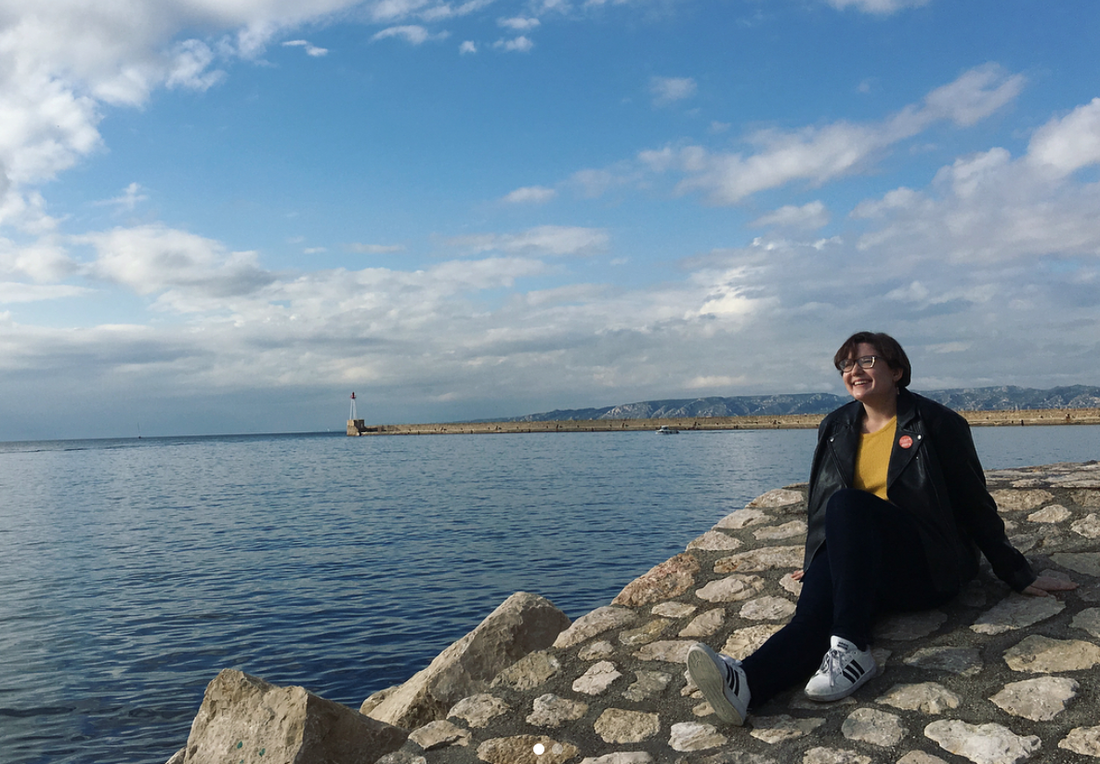

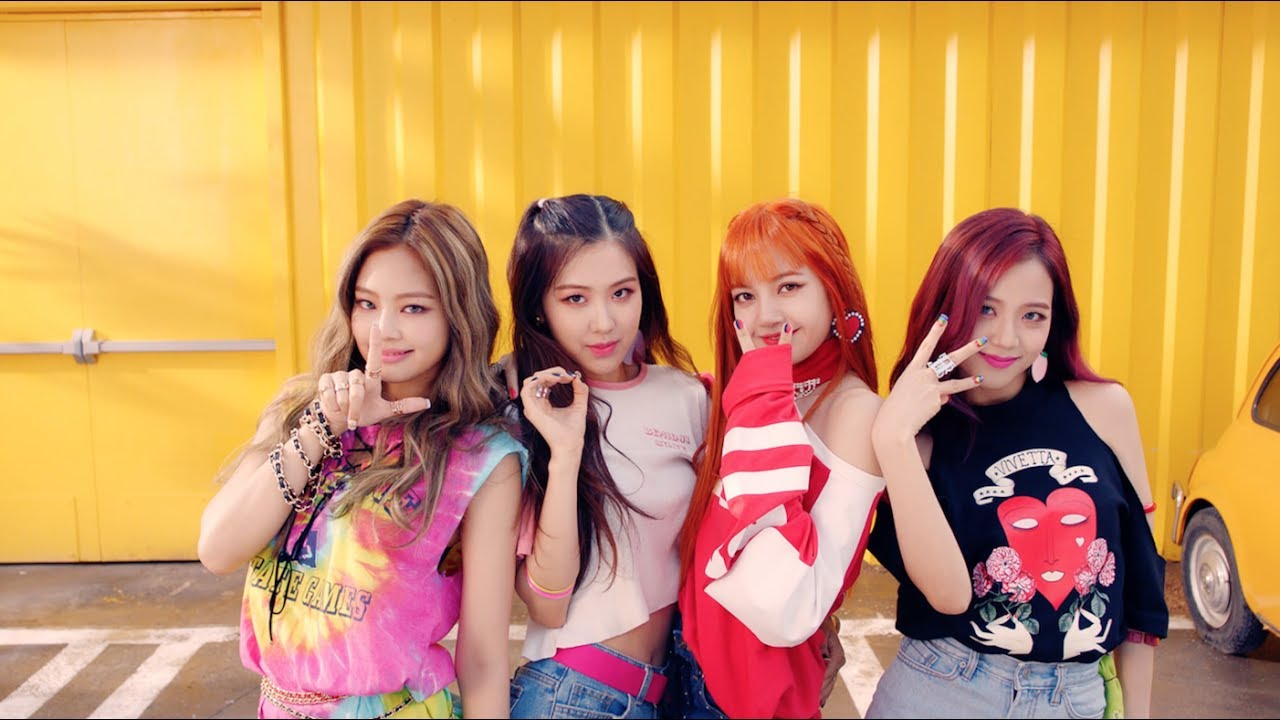

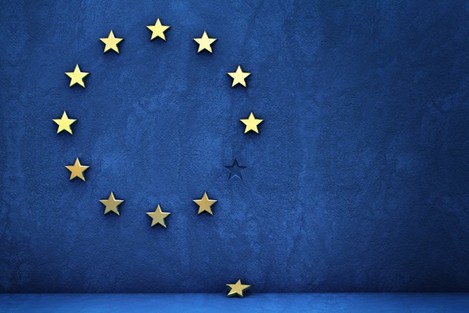
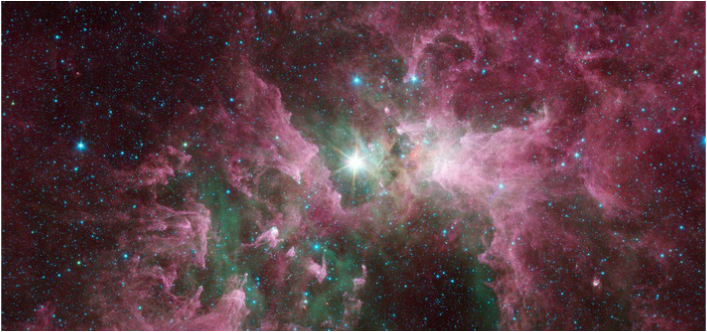
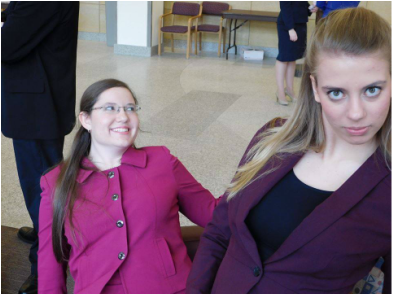
 RSS Feed
RSS Feed